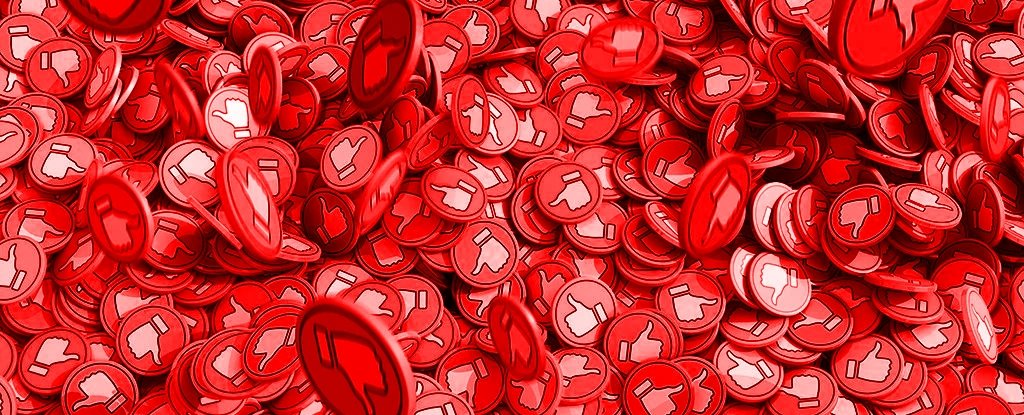Products You May Like
If you feel like you’re met with a lot of anger and vitriol every time you open up your social media apps, you’re not imagining it: A new study shows how these online networks are encouraging us to express more moral outrage over time.
What seems to be happening is that the likes, shares and interactions we get for our outpourings of indignation are reinforcing those expressions. That in turn encourages us to carry on being morally outraged more often and more visibly in the future.
What this study shows is that reinforcement learning is evident in the extremes of online political discussion, according to computational social psychologist William Brady from Yale University, who is one of the researchers behind the work.
“Social media’s incentives are changing the tone of our political conversations online,” says Brady. “This is the first evidence that some people learn to express more outrage over time because they are rewarded by the basic design of social media.”
The team used computer software to analyze 12.7 million tweets from 7,331 Twitter users, collected during several controversial events, including debates over hate crimes, the Brett Kavanaugh hearing, and an altercation on an aircraft.
For a tweet to qualify as showing moral outrage, it had to meet three criteria: it had to be a response to a perceived violation of personal morals; it had to show feelings such as anger, disgust, or contempt; and it had to include some kind of blame or call for accountability.
The researchers found that getting more likes and retweets made people more likely to post more moral outrage in their later posts. Two further controlled experiments with 240 participants backed up these findings, and also showed that users tend to follow the ‘norms’ of the networks they’re part of in terms of what is expressed.
The amplifying outrage influence was biggest on politically moderate users, the researchers found – those already at the more extreme end of the spectrum tended to be less concerned with social feedback when it came to deciding how outraged to be.
“Our studies find that people with politically moderate friends and followers are more sensitive to social feedback that reinforces their outrage expressions,” says psychologist Molly Crockett from Yale University.
“This suggests a mechanism for how moderate groups can become politically radicalized over time – the rewards of social media create positive feedback loops that exacerbate outrage.”
For several years now, questions have been asked about the broad effects platforms like Facebook, Twitter, and Instagram are having on society. They can have negative impacts on mental health, in part due to the pressure to constantly compare our lives with others.
The study stops short of ruling on whether this amplification of moral outrage is good or bad – noting that these expressions can be a positive force for society, highlighting wrongdoing and bringing people to account – but if you’ve spent much time on Twitter or Facebook you’ll know how fast these conversations can degenerate.
What the researchers do want to see is more awareness of how social networks can train behavior, like any other kind of social interaction, whether online or offline. Our character is, to a greater or lesser extent, formed by the feedback that we get from the people around us.
“Amplification of moral outrage is a clear consequence of social media’s business model, which optimizes for user engagement,” says Crockett.
“Given that moral outrage plays a crucial role in social and political change, we should be aware that tech companies, through the design of their platforms, have the ability to influence the success or failure of collective movements.”
The research has been published in Science Advances.
